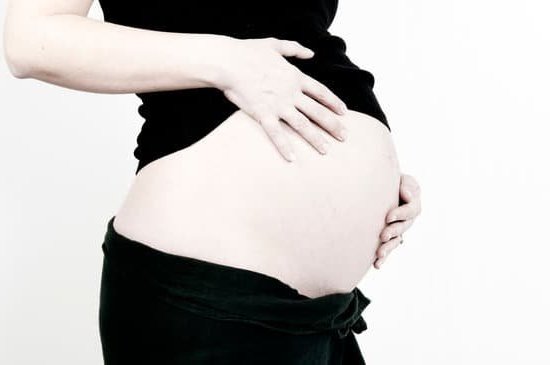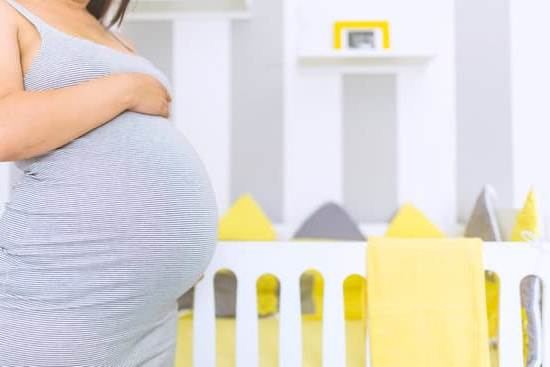During pregnancy, it is essential to be mindful of what teas are safe to consume to ensure the well-being of both the mother and the baby. The question of “what teas are safe during pregnancy” often arises among expecting mothers looking for ways to incorporate this soothing beverage into their daily routine without any negative repercussions. Understanding the importance of safe tea choices during pregnancy can help expecting mothers make informed decisions about their beverage consumption.
While some may opt to avoid tea altogether during pregnancy due to concerns about caffeine or potential herbal interactions, there are actually many benefits to drinking certain types of tea while expecting. From aiding with nausea and digestion to providing a comforting ritual amidst the physical changes of pregnancy, tea can offer both physical and emotional support during this special time.
However, it is crucial to know which teas are safe for consumption during pregnancy and how they can positively impact the mother’s health.
In this comprehensive guide, we will explore the general guidelines for choosing safe teas during pregnancy, including a list of herbal teas that are considered safe for pregnant women. We will also discuss caffeinated teas that should be limited or avoided during pregnancy, as well as special considerations regarding herbal teas and their potential effects on pregnancy.
By understanding these factors and consulting with a healthcare provider, pregnant women can confidently enjoy a cup of tea knowing that they are making informed decisions for themselves and their baby.
Benefits of Drinking Tea During Pregnancy
During pregnancy, many women may experience a variety of discomforts such as nausea, indigestion, and fatigue. Drinking tea can be a soothing and comforting way to alleviate some of these symptoms. Certain herbal teas are known for their calming properties, which can be beneficial during pregnancy. For example, peppermint tea is often recommended for easing digestive issues like bloating and indigestion.
In addition to providing relief from common pregnancy symptoms, certain teas can also offer health benefits for both the mother and baby. For instance, ginger tea is known for its anti-inflammatory properties and can help alleviate nausea. Rooibos tea is rich in antioxidants and minerals like calcium and magnesium, which are essential for maintaining overall health during pregnancy.
It’s important to note that not all teas are safe during pregnancy. Caffeinated teas should be consumed in moderation as excessive caffeine intake has been linked to complications such as low birth weight and preterm labor. It’s crucial for expectant mothers to educate themselves on what teas are safe during pregnancy and to consult with their healthcare provider before incorporating any new teas into their daily routine.
| Tea | Safety During Pregnancy |
|---|---|
| Peppermint Tea | Safe for easing digestive issues |
| Ginger Tea | Beneficial for alleviating nausea |
| Rooibos Tea | Rich in antioxidants and minerals; safe for consumption |
General Guidelines for Choosing Safe Teas During Pregnancy
During pregnancy, it is essential for women to be cautious about what they consume, including the beverages they drink. When it comes to tea, there are certain guidelines that pregnant women should follow to ensure they are making safe choices for themselves and their baby. It’s important to remember that not all teas are safe during pregnancy, so being informed about which ones to avoid can help prevent any potential risks.
One key guideline for choosing safe teas during pregnancy is to opt for herbal teas that are caffeine-free. Herbal teas such as ginger, peppermint, and red raspberry leaf are generally considered safe for pregnant women in moderate amounts.
These teas can provide various benefits such as soothing digestion, relieving nausea, and even preparing the uterus for labor. However, it is crucial to consult with a healthcare provider before incorporating any new herbal tea into your prenatal routine to ensure it is suitable for you.
Another important factor to consider when choosing safe teas during pregnancy is the source of the ingredients. It is recommended to select organic and high-quality teas to minimize exposure to pesticides and other harmful chemicals.
Additionally, pregnant women should avoid consuming herbal teas that contain potentially dangerous herbs such as black cohosh, pennyroyal, or dong quai. To further ensure the safety of your tea choices during pregnancy, always read labels carefully and research any unfamiliar ingredients before brewing a cup.
| Safe Herbal Teas | Caffeinated Teas to Limit |
|---|---|
| Ginger Tea | Green Tea |
| Peppermint Tea | Black Tea |
| Red Raspberry Leaf Tea | Oolong Tea |
Herbal Teas Safe for Pregnant Women
During pregnancy, many women turn to herbal teas as a soothing and comforting beverage option. However, it is crucial to be mindful of which herbal teas are safe to consume during this time. Below are some herbal teas that are generally considered safe for pregnant women:
- Peppermint tea: Known for its calming effects on the digestive system, peppermint tea can help alleviate nausea and indigestion commonly experienced during pregnancy.
- Ginger tea: Another nausea-fighting powerhouse, ginger tea is a popular choice among pregnant women. It also has anti-inflammatory properties that can help with overall digestion.
- Raspberry leaf tea: This herbal tea is often recommended for pregnant women in their third trimester due to its potential benefits for toning the uterus and potentially easing labor pains. It is best to consult with your healthcare provider before consuming raspberry leaf tea.
While these herbal teas are generally recognized as safe during pregnancy, it is important to consume them in moderation and be aware of any additional ingredients that may be present in the blend. Always check with your healthcare provider before incorporating any new herbal teas into your routine.
When choosing herbal teas during pregnancy, opt for organic varieties whenever possible to minimize exposure to pesticides and other potential contaminants. Additionally, be cautious of herbal teas that claim to have medicinal properties or promise specific health benefits without scientific evidence supporting their safety during pregnancy.
Remember, every pregnancy is unique, so what works well for one expectant mother may not necessarily work for another. It is always best to err on the side of caution and seek guidance from your healthcare provider when considering which herbal teas are safe to consume during pregnancy.
Caffeinated Teas to Limit During Pregnancy
During pregnancy, it is crucial for expectant mothers to be mindful of their caffeine intake, including the consumption of caffeinated teas. While some caffeine is generally considered safe during pregnancy, excessive amounts can potentially harm both the mother and the developing baby. As a result, it is important to limit the intake of certain caffeinated teas to ensure a healthy pregnancy.
Some common types of caffeinated teas that pregnant women should consider limiting include black tea, green tea, and oolong tea. These teas contain varying amounts of caffeine, with black tea typically having the highest caffeine content. While consuming moderate amounts of these teas may not necessarily pose a risk, excessive consumption can lead to potential complications such as increased heart rate, restlessness, and difficulty sleeping.
To ensure a safe pregnancy, it is recommended that pregnant women do not exceed 200-300 milligrams of caffeine per day. This equates to roughly one to two cups of brewed coffee or up to four cups of brewed tea. It is important for expectant mothers to keep track of their overall daily caffeine intake from all sources, including beverages like soda and chocolate in addition to caffeinated teas.
In addition to monitoring their caffeine intake, pregnant women should also pay attention to the brewing time and temperature when preparing caffeinated teas. By following proper brewing guidelines and consuming these teas in moderation, expectant mothers can enjoy their favorite beverages while prioritizing the health and well-being of themselves and their baby during this special time.
Special Considerations for Herbal Teas and Their Effects on Pregnancy
During pregnancy, it is important for expectant mothers to be mindful of what teas they consume due to the potential impact on their health and that of their developing baby. Herbal teas are often perceived as a natural and healthy beverage option, but certain herbs may have adverse effects during pregnancy. It is crucial to understand which herbal teas are safe and beneficial for pregnant women to consume.
When it comes to choosing herbal teas during pregnancy, it is recommended to opt for those that are known to be safe and have minimal risks. Some herbal teas that are generally considered safe during pregnancy include:
- Peppermint tea: known for its soothing properties and ability to alleviate nausea
- Ginger tea: can help with digestion and relieve morning sickness
- Raspberry leaf tea: believed to tone the uterus and prepare it for childbirth
On the other hand, there are herbal teas that should be avoided during pregnancy due to their potential negative effects. These include:
- Chamomile tea: may cause uterine contractions
- Parsley tea: can stimulate blood flow to the uterus
- Black cohosh tea: has been linked to premature labor
It is essential for pregnant women to always consult with their healthcare provider before incorporating any herbal teas into their daily routine. Each woman’s body reacts differently, so what works well for one individual may not have the same effect on another. Being informed about what teas are safe during pregnancy can help expecting mothers make responsible choices for themselves and their babies.
How to Properly Brew and Consume Tea During Pregnancy
During pregnancy, it is crucial to pay attention to not only the type of tea you consume but also how you brew and consume it. The way tea is prepared can affect its safety and efficacy during pregnancy. Here are some important considerations for properly brewing and consuming tea while pregnant:
Choosing the Right Teas
When selecting teas to drink during pregnancy, opt for herbal teas that are known to be safe for expectant mothers. These include peppermint, ginger, chamomile, and rooibos. These herbal teas are caffeine-free and have been traditionally used for their calming and soothing properties.
Brewing Methods
Proper brewing is essential to ensure that your tea is safe for consumption during pregnancy. Make sure to follow the instructions on the packaging for steeping time and temperature. Avoid using boiling water for herbal teas as it can destroy some of the beneficial compounds in the herbs.
Serving Size
While herbal teas are generally considered safe during pregnancy, it is still important to moderate your intake. Limit your consumption to 1-2 cups per day to prevent any potential side effects or interactions with medications you may be taking. It’s always a good idea to consult with your healthcare provider before adding new teas to your diet.
By following these guidelines for brewing and consuming tea during pregnancy, you can enjoy the benefits of a warm cup of herbal tea while ensuring the safety of both you and your baby. Remember that moderation is key, and when in doubt, always consult with your healthcare provider for personalized advice on what teas are safe during pregnancy.
Consulting With a Healthcare Provider Before Incorporating Tea Into Your Prenatal Routine
During pregnancy, it is crucial for expectant mothers to be mindful of what they consume, including their tea choices. Consulting with a healthcare provider before incorporating any new teas into your prenatal routine is highly recommended. This step ensures that you are making informed decisions about what teas are safe during pregnancy and which ones to avoid.
Importance of Consulting With a Healthcare Provider
Healthcare providers play a key role in guiding pregnant women on the safety of different teas during pregnancy. They can provide personalized advice based on individual health conditions, allergies, and nutritional needs. By consulting with a healthcare provider, expectant mothers can minimize risks and make healthier choices when it comes to consuming teas during this crucial time.
Ensuring Safe Tea Choices
Pregnancy can bring about various changes in the body, making it essential to ensure that the teas consumed are not harmful to both the mother and the developing baby. Healthcare providers can recommend specific herbal teas known for their safety during pregnancy, such as ginger or peppermint tea.
They can also advise on limiting caffeine intake from teas like green or black tea. By seeking guidance from a healthcare provider, pregnant women can maintain peace of mind knowing they are making the best choices for their health and that of their baby.
Conclusion
In conclusion, it is crucial for pregnant women to be aware of what teas are safe during pregnancy in order to make informed decisions about their tea consumption. While there are numerous benefits to drinking tea during pregnancy, such as providing hydration and potentially easing certain symptoms, it is important to adhere to general guidelines when selecting teas. Opting for herbal teas that are known to be safe for pregnant women, like ginger or peppermint, can be a great choice.
However, it is equally important to limit the consumption of caffeinated teas during pregnancy and be cautious of certain herbal teas that may have adverse effects on pregnancy. Consulting with a healthcare provider before incorporating any new teas into your prenatal routine is highly recommended to ensure the safety and well-being of both mother and baby. Healthcare providers can provide personalized recommendations based on individual health conditions and pregnancy stages.
By empowering pregnant women with knowledge about safe tea choices during pregnancy, they can confidently navigate their tea consumption throughout this special time. Making informed decisions about which teas to drink can contribute to a healthier pregnancy journey and ultimately lead to better outcomes for both mother and baby. Remember, when in doubt, always consult with your healthcare provider for guidance on what teas are safe during pregnancy.
Frequently Asked Questions
What Are the Safest Teas to Drink While Pregnant?
During pregnancy, it’s generally safe to drink certain herbal teas like ginger, peppermint, and raspberry leaf tea in moderation. These teas are considered safe for pregnant women due to their low caffeine levels and potential health benefits.
Is Peppermint Tea Safe in Pregnancy?
Peppermint tea is usually considered safe to drink during pregnancy when consumed in moderation. It can help ease digestion issues like bloating and nausea, which are common discomforts during pregnancy. However, excessive consumption should be avoided.
Is Spearmint Tea Safe During Pregnancy?
Spearmint tea is also considered safe for pregnant women when consumed in moderate amounts. It may help alleviate symptoms like indigestion and nausea. However, it’s essential to avoid consuming spearmint tea in large quantities due to its potential effects on hormone levels.

Welcome to my fertility blog. This is a space where I will be sharing my experiences as I navigate through the world of fertility treatments, as well as provide information and resources about fertility and pregnancy.





